CNS In Southern Georgia Brings Communities Together
Step across the county line in Thomas County, Georgia and you will be in Florida. Its county seat, Thomasville, has been chosen as a one of the best places to retire. Thomasville's website is filled with pics of grand white pillared porches, rose gardens, and long winding paths lined with graceful oaks. It strikes me as a place to sit, sip a mint julep, and enjoy a passing breeze.
Appearances can be deceiving. Thomasville has been keeping up with the times by enhancing their fiber optic capabilities since 1995. While their project began as city investment, they are now part of a community network that serves several other local municipalities spanning several counties. The network brought services to an area the private providers had neglected.
The network began by connecting local schools, hospitals, and businesses, but quickly attracted residential subscribers. Within two years, neighboring Cairo (Grady County), Camilla (Mitchell County), and Moultrie (Colquitt County) joined Thomasville to create the collaborative development authority, now sometimes referred to as the South Georgia Governmental Services Authority. The purpose of the Authority was to expand Community Network Services (CNS) to reach more of the region in more ways. While each town benefits from connecting to the other three, they all maintain their own network as part of the CNS system. A few smaller towns in the area are also part of the network.
Past press releases record many instances of community, success, and positive use of their network. From the very beginning of CNS, it was apparent that the local leaders knew the community needed to act for itself. These words, spoken in 1997, have been echoed many times by the founders of municipal networks:
"Rural Georgia has been bypassed by technology for a long time," said Thomasville City Manager Tom Berry. "If we want economic development to occur here, we have to make sure the technology those businesses need is available."


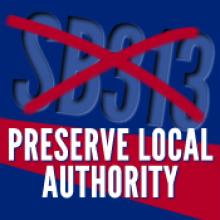
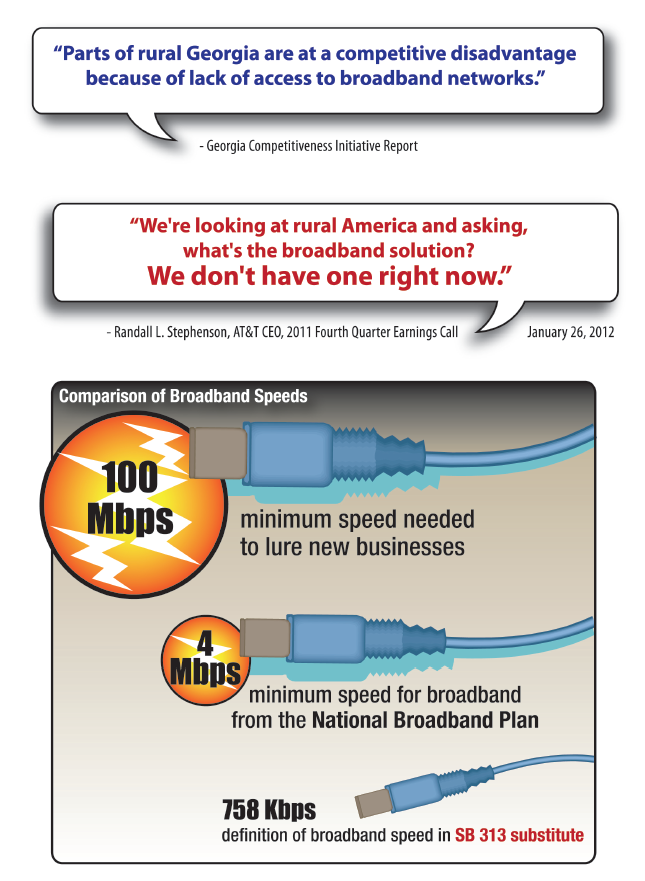 Note, that AT&T was originally trying to define broadband at the
Note, that AT&T was originally trying to define broadband at the 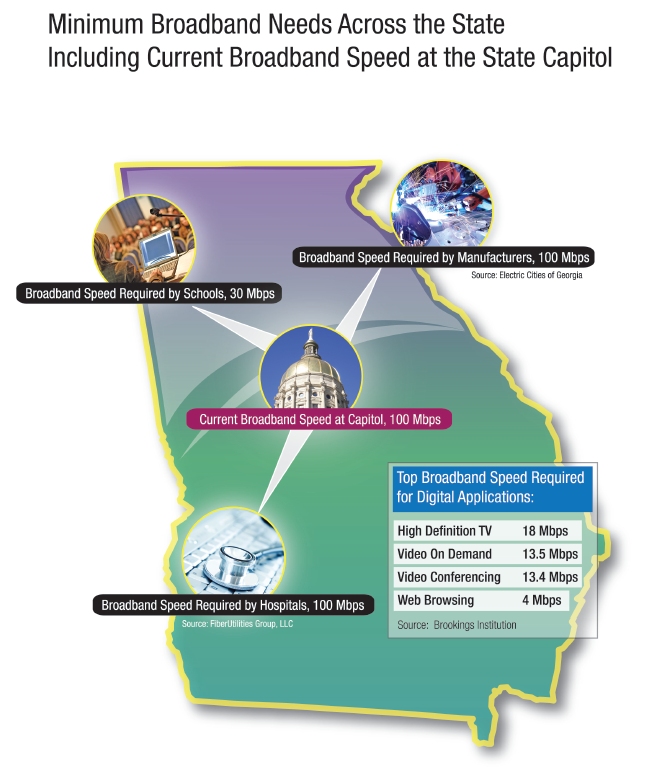 Rememeber that elected officials often think of broadband in binary terms. You have it or you don't. In their mind, if you have options aside from dial-up, the problem is solved. These are people that often do not know what is needed to attract economic development, work efficiently from home, or successfully compete remote education courses.
Rememeber that elected officials often think of broadband in binary terms. You have it or you don't. In their mind, if you have options aside from dial-up, the problem is solved. These are people that often do not know what is needed to attract economic development, work efficiently from home, or successfully compete remote education courses.
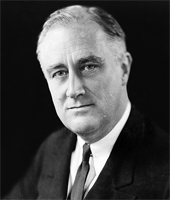
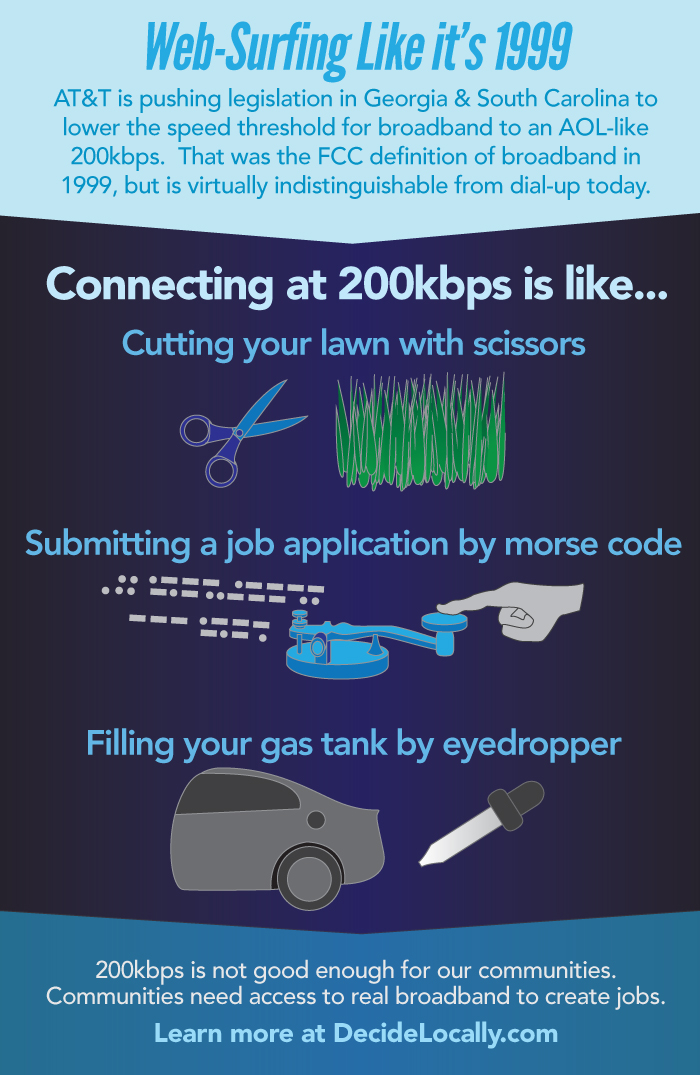 Feel free to spread it around. Higher quality pdf below.
Feel free to spread it around. Higher quality pdf below.